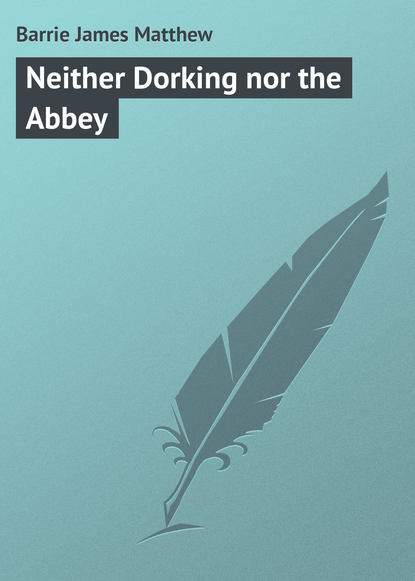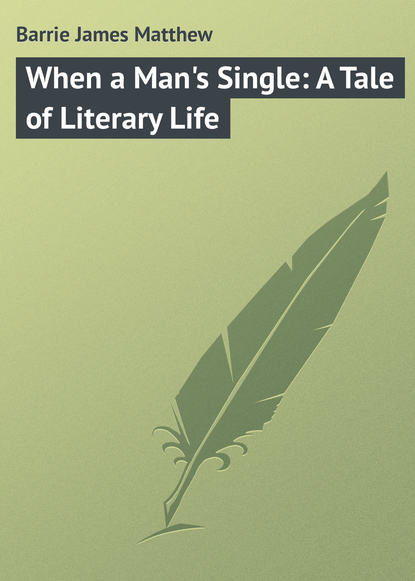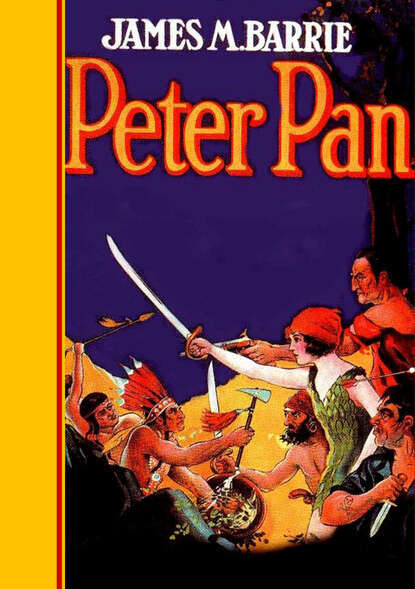 Полная версия
Полная версияПолная версия:
Джеймс Мэтью Барри Neither Dorking nor the Abbey
- + Увеличить шрифт
- - Уменьшить шрифт

J. M. Barrie
Neither Dorking nor the Abbey
NOTE
In England recently there died a great man – the greatest of his day. Immediately there arose much vain contention as to whether or no his dust should be given resting place among that of his peers in Westminster Abbey. Finally came the decision that Westminster was not to be so honored; and the urn containing all of him that had outlived the fire was placed in the sunny graveyard of Dorking village. Looking down toward it from the long level summit of Box Hill – his hill, – with the sunlight glinting from its marbles and along the silver Mole that winds threadlike beside it, the little cemetery seems almost a living cheerful thing in the dark green of the surrounding landscape. Surely here, if anywhere, was appropriate resting-place for this great lover of life and joy.
The tribute to Meredith contained in the following pages, perhaps the most fitting and beautiful of any inspired by his death, was originally published in the London "Westminster Gazette" for May 26, 1909.
NEITHER DORKING NOR THE ABBEY
All morning there had been a little gathering of people outside the gate. The funeral coach came, and a very small thing was placed in it and covered with flowers. One plant of the wallflower in the garden would have covered it. The coach took the road to Dorking, followed by a few others, and in a moment or two all seemed silent and deserted, the cottage, the garden, and Box Hill.
The cottage was not deserted, as they knew who now trooped into the round in front of it, their eyes on the closed door. They were the mighty company, his children, – Lucy and Clara and Rhoda and Diana and Rose and old Mel and Roy Richmond and Adrian and Sir Willoughby and a hundred others, and they stood in line against the box-wood, waiting for him to come out. Each of his women carried a flower, and the hands of all his men were ready for the salute.
In the room on the right, in an armchair which had been his home for years – to many the throne of letters in this country – sat an old man, like one forgotten in an empty house. When the last sound of the coaches had passed away he moved in his chair. He wore grey clothes and a red tie, and his face was rarely beautiful, but the hair was white and the limbs were feeble, and the wonderful eyes dimmed, and he was hard of hearing. He moved in his chair, for something was happening to him, and it was this, old age was falling from him. This is what is meant by death to such as he, and the company waiting knew. His eyes became again those of the eagle, and his hair was brown, and the lustiness of youth was in his frame, but still he wore the red tie. He rose, and not a moment did he remain within the house, for "golden lie the meadows, golden run the streams," and "the fields and the waters shout to him golden shouts." He flung open the door, as they knew he would do who were awaiting him, and he stood there looking at them, a general reviewing his troops. They wore the pretty clothing in which he had loved to drape them; they were not sad like the mourners who had gone, but happy as the forget-me-nots and pansies at their feet and the lilac overhead, for they knew that this was his coronation day. Only one was airily in mourning, as knowing better than the others what fitted the occasion, the Countess de Saldar. He recognized her sense of the fitness of things with a bow. The men saluted, the women gave their flowers to Dahlia to give to him, so that she should have his last word, and he took their offerings and passed on. They did not go with him, they went their ways to carry his glory through the world.
Without knowing why, for his work was done, he turned to the left, passing his famous cherry-blossom, and climbed between apple-trees to a little house of two rooms, whence most of that noble company had sprung. He went there only because he had gone so often, and this time the door was locked; he did not know why nor care. He came swinging down the path, singing lustily, and calling to his dogs, his dogs of the present and the past; and they yelped with joy, for they knew they were once again to breast the hill with him.
He strode up the hill whirling his staff, for which he had no longer any other use. His hearing was again so acute that from far away on the Dorking road he could hear the rumbling of a coach. There came to him somehow a knowledge (it was the last he ever knew of little things) that people had been at variance as to whether a casket of dust should be laid away in one hole or in another, and he flung back his head with the old glorious action, and laughed a laugh "broad as a thousand beeves at pasture."
Box Hill was no longer deserted. When a great man dies – and this was one of the greatest since Shakespeare – the immortals await him at the top of the nearest hill. He looked up and saw his peers. They were all young, like himself. He waved the staff in greeting. One, a mere stripling, "slight unspeakably," detached himself from the others, crying gloriously as he recognized his master, "Here's the fellow I have been telling you about!" and ran down the hill to be the first to take his hand. In the meantime an empty coach was rolling on to Dorking.
G. M
1828-1909Forty years back, when much had placeThat since has perished out of mind,I heard that voice and saw that face.He spoke as one afoot will windA morning horn ere men awake;His note was trenchant, turning kind.He was of those whose wit can shakeAnd riddle to the very coreThe counterfeits that Time will break…Of late, when we two met once more,The luminous countenance and rareShone just as forty years before.So that, when now all tongues declareHis shape unseen by his green hill,I scarce believe he sits not there.No matter. Further and further stillThrough the world's vaporous vitiate airHis words wing on – as live words will.Thomas Hardy.May, 1909






